EMS News
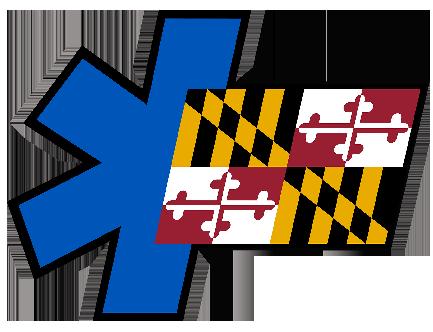


Grants available to increase retention and career pathways for frontline healthcare workers
The Maryland Department of Labor (MDL) has announced the availability of $1 million in grant funding to support the recruitment, retention, and career pathway development of frontline healthcare professionals. Applications are now being accepted for the Direct Care Workforce Innova-
tion Program and the Career Pathways for Healthcare Workers Program. Proposals are due on April 4, 2025, and grants will begin on June 1, 2025.
“Frontline healthcare workers provide essential services that help our communities stay healthy and safe,” said Maryland Department of Labor Secretary Portia Wu. “These initiatives provide the training, resources, and support needed to develop and retain a strong, highly-skilled healthcare workforce.”
The Direct Care Workforce In-
novation Program is designed to increase the number and availability of direct care workers across Maryland through successful recruitment and retention strategies. It was made possible through legislation passed by the Maryland General Assembly in 2021, and will provide a total of $250,000 in grants in FY25. Eligible applicants for these grants include non-profit and labor organizations, direct care employers, and entities with shared
See Funding page 12
The number of fatal overdoses in Maryland decreased dramatically in 2024, according to preliminary data from Maryland's Overdose Data Dashboard. The 1,533 fatal overdoses reported in Maryland last year represent a 38% decrease from the 2,511 fatal overdoses reported in 2023.
“The decrease in fatal overdoses that we’re seeing in Maryland is historic, and it’s proof that our investments in behavioral health and substance use care and the incredible efforts of people all around our state
are paying off,” said Governor Wes Moore. “However, we still have work to do. We are still losing far too many of our loved ones and neighbors to preventable overdoses, and we will not let up in our efforts to meet people where they are and make connections to care.”
time fatal overdoses in Maryland fell below 2,000 was in 2015, when there were 1,259 fatal overdoses in the state.
“Maryland remains committed to ensuring access to substance use care whenever and wherever it is needed,” said Maryland Department of Health Secretary Dr. Laura Herrera Scott. “The progress we have made would not be possible without the hard work of dedicated individuals across the state, from local health departments and lo-
Fatal overdoses in Maryland and across the country reached historic highs following the COVID-19 pandemic. In 2021, 2,800 people died from a fatal overdose in Maryland –the most in the state’s history. The last See Overdoses page 12
March
n 2–7: National Fire Service Staff and Command Course. Annapolis, MD.
n 7–8: 20th Annual Miltenberger Emergency Services Seminar. Rocky Gap Casino and Resort, Flintstone, MD.
May
n 15–16: Point/Counterpoint XLII.Baltimore, MD.
n 18–24: National EMS Week.
n 27–30: Maryland Emergency Management Association Symposium 2025. Ocean City, MD.
June
n 1: Maryland Fire-Rescue Services Memorial Induction. Annapolis, MD.
n 14–19: 133rd Maryland State Firefighters Association Annual Convention and Conference Ocean City, MD.
n Maryland's GO TEAM on the Go (EMS1) As part of the Maryland EMS system, Maryland’s GO-TEAM, based at the R Adams Cowley Shock Trauma Center, has seen an increasing request for services. The team was requested on 13 incidents in 2024, nearly triple the incidents since 2020. Read more: https://www.ems1.com/ trauma/marylands-go-team-on-the-go n Conduit Street Podcast: Aging Well in Maryland (Maryland Association of Counties). From innovative programs to direct services and advocacy efforts, this podcast covers the strategies and partnerships ensuring Marylanders can thrive at every stage of life. Learn about the who, what, when, where, and how of services for aging populations in Maryland and their families. Read more: https://conduitstreet.mdcounties.org/2025/01/03/ conduit-street-podcast-aging-well-inmaryland/
n The Importance of a Proactive Approach to Mental Well-Being in First Responders (Journal of Emergency Medical Services). EMS clini-
cians routinely face life-threatening, emotionally stressful situations. Over time, these cumulative stressors can lead to mental health issues like burnout, anxiety, depression, PTSD, or even suicide. To address these concerns, it is vital to adopt a proactive, scientifically validated, and anonymous approach to mental wellness. Read more: https://www.jems.com/ mental-health-wellness/proactive-approach-to-mental-well-being-in-firstresponders/
n The Untapped Lifesaving Potential of Prehospital Blood Transfusion (NHTSA Office of EMS). Exsanguination remains the leading cause of preventable death among victims of trauma, with nearly half of trauma patients dying before they reach the hospital. You may also know that 42% of people in a crash who later died were still alive when first responders arrived. Simply put, delivering blood at the scene could save many more lives. Read more: https://www.ems.gov/resources/newsletters/december-2024/ prehospital-blood-transfusion-101/. n
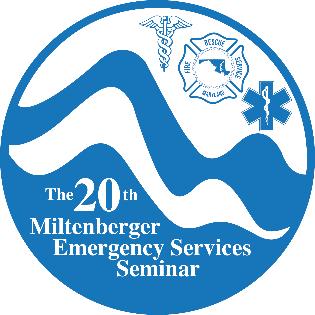
March 7 - 8 , 2025
Rocky Gap Casino Resort & Golf , Flintstone, MD
Presented by
The Maryland Institute for Emergency Medical Services Systems, the Maryland Fire and Rescue Institute, the Region I Emergency Services Education Council, Garrett College, and Allegany College of Maryland
Enjoy the relaxing atmosphere of the mountains of Western Maryland alongside high-quality continuing education opportunities at the 20th Annual Miltenberger Emergency Services Seminar, March 7-8, 2025, at the Rocky Gap Casino Resort in Flintstone, Maryland.
Successful outcomes in any type of incident depend upon strong, cooperative relationships between public safety and healthcare clinicians. The Miltenberger Emergency Services Seminar fosters connection between the fields of EMS, Nursing, Fire, and Dispatch through serving the unique continuing education needs of prehospital clinicians, nurses, and other emergency services personnel across Western Maryland and throughout the surrounding region. This year’s program will feature a variety of pre-seminar workshops on Friday, March 7, followed by Saturday’s all-day seminar. Some classrooms are limited in size, so register now.

This year’s keynote speaker will inspire you with his story. William Joseph Thomas was an innocent bystander when a mass shooting at Randallstown High School in Baltimore left the threesport athlete paralyzed from the injuries he sustained. However, William identifies not as a victim but as an engineer, advocate, service-oriented leader and, most importantly, an incredibly resilient survivor. Drawing from his own experience, William educates others on topics such as mental health, trauma-informed care, disability awareness, race relations, and violence prevention. He also promotes STEM (Science, Technology, Engineering, and Math) education in the urban community. Don’t miss this exciting and enlightening opportunity on Saturday, March 8!
Pre-registration is required and must be received via our website, www.miltenbergerseminar.com, or at the MIEMSS Region I & II Office by February 25, 2025. Attendees who have paid to attend the seminar and registered by this date will receive a t-shirt at sign-in Register early to ensure your space in this outstanding program. Registration confirmation notices will be emailed If the confirmation notice has not been received by March 1, 2025, it is the attendee’s responsibility to verify that their registration has been received. Late registration will be accepted on a space-available basis.
Cancellation notices submitted in writing to the MIEMSS Region I & II Office and postmarked no later than February 25, 2025, will be eligible for a full refund. If a registrant is unable to attend, another person may be substituted with a letter from the original registrant or sponsoring agency authorizing the substitution No refunds will be issued for cancellations after February 25, 2025.
All full-day workshops on Friday, March 7, at Rocky Gap Casino Resort are $95; half-day courses are $50. The Saturday seminar’s $120 registration fee covers all activities, including continental breakfast, breaks, luncheon, and printed materials. Payment may be made in the form of a check or by credit card (there is a $30 fee for all returned checks). If your company or agency would like to be invoiced for the program, please contact the MIEMSS Region I & II Office at 301-895-5934 or 301-746-8636. Payment information must accompany registration. This affordable registration fee is possible due to the generous support of UPMC Western Maryland, Garrett Regional Medical Center – WVU Medicine, R Adams Cowley Shock Trauma Center, Maryland Emergency Number Systems Board, Emergency Medical Services for Children, US Acute Care Solutions, MIEMSS, and MFRI.
Continuing Education Credits
MIEMSS has approved continuing education credits for all workshops and lectures. Conference materials will also be available for continuing education credits from neighboring jurisdictions and other organizations upon request
Nursing Contact Hours
The Miltenberger Seminar provides contact hours as noted below utilizing the UPMC Center for Continung Education in Health Sciences (CCEHS). To receive nursing contact hours, participants are required to attend the entire session and submit the course evaluation.
Courses for Nursing Credits – T denotes Trauma Credits
Friday: Nursing / ALS Program (6 hrs.) T 2 hrs.
Cadaver (3 hrs.) T
New Strategies for Cardiac Arrest Management (3 hrs.)
Saturday: Hemorrhagic Emergencies (1.5 hrs.) T
Resuscitation after ROSC (1.5 hrs.)
Sneaky Snakes (1.5) T
After the Fire is Out (1.5 hrs.) T
Whole Blood in the Field (1.5 hrs.) T
Managing Edible Cannabis Exposures (1.5 hrs.)
Human Trafficking (1.5 hrs.)
DKA/HHS (1.5 hrs.)
Go Team Rawlings (1.5 hrs.) T
Commercial Air Medical Emergencies (1.5)

Providing high-quality prehospital care to the people of Maryland demands intense dedication and focus on the part of the state's EMS clinicians. This is especially critical when the patient is an infant or child, which is why the Maryland EMS for Children (EMSC) program works throughout the year to develop cutting-edge training techniques and bring them to clinicians across the state. EMSC faculty, led by Associate State EMS Medical Director for Pediatrics Dr. Jennifer Anders, presented "Pediatric Ready: Caring for the Critically Ill Child", one of several preconference workshops available to attendees of the annual Winterfest EMS Conference, held January 31 – February 22, 2025. n
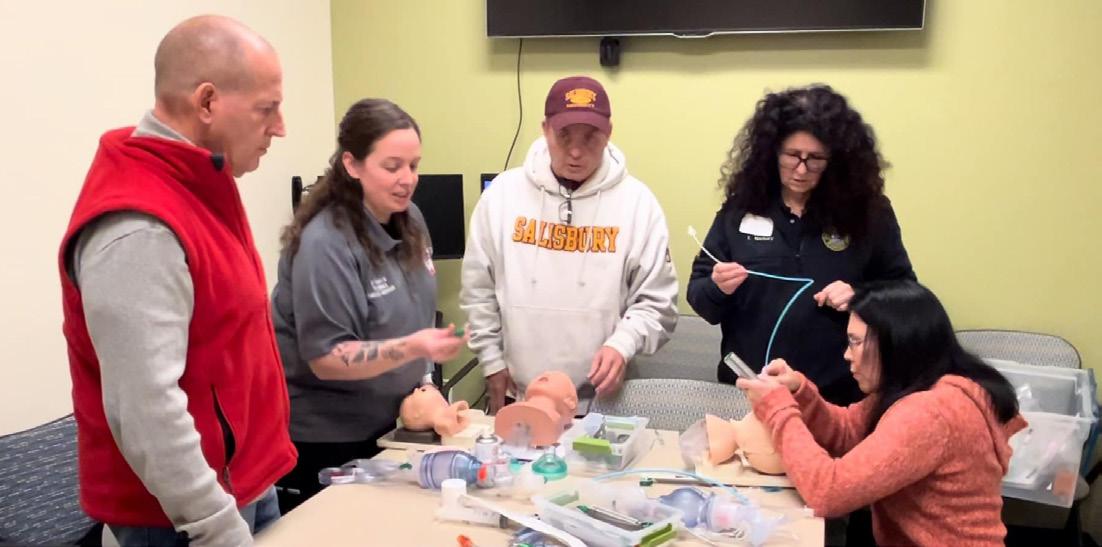
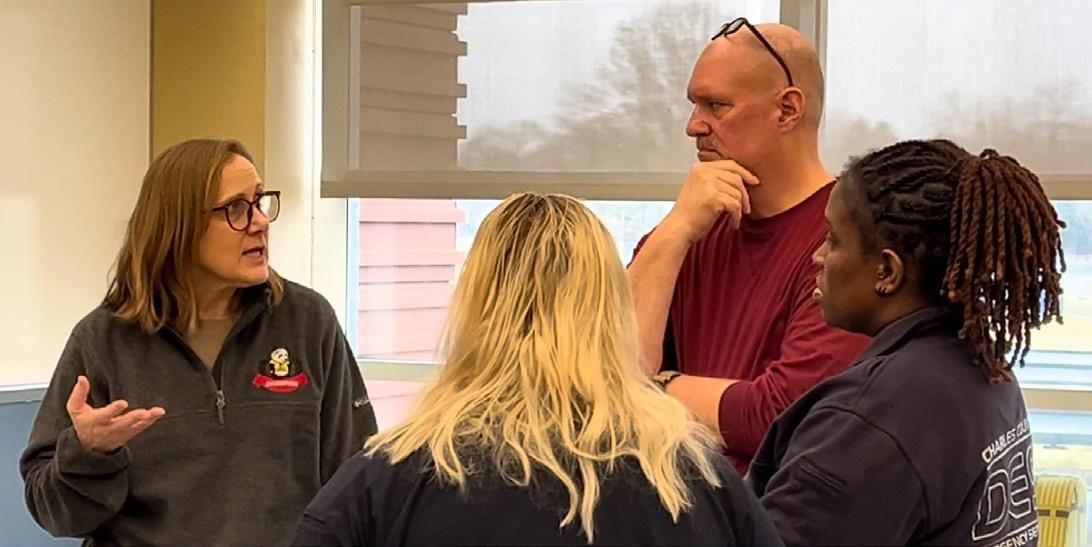



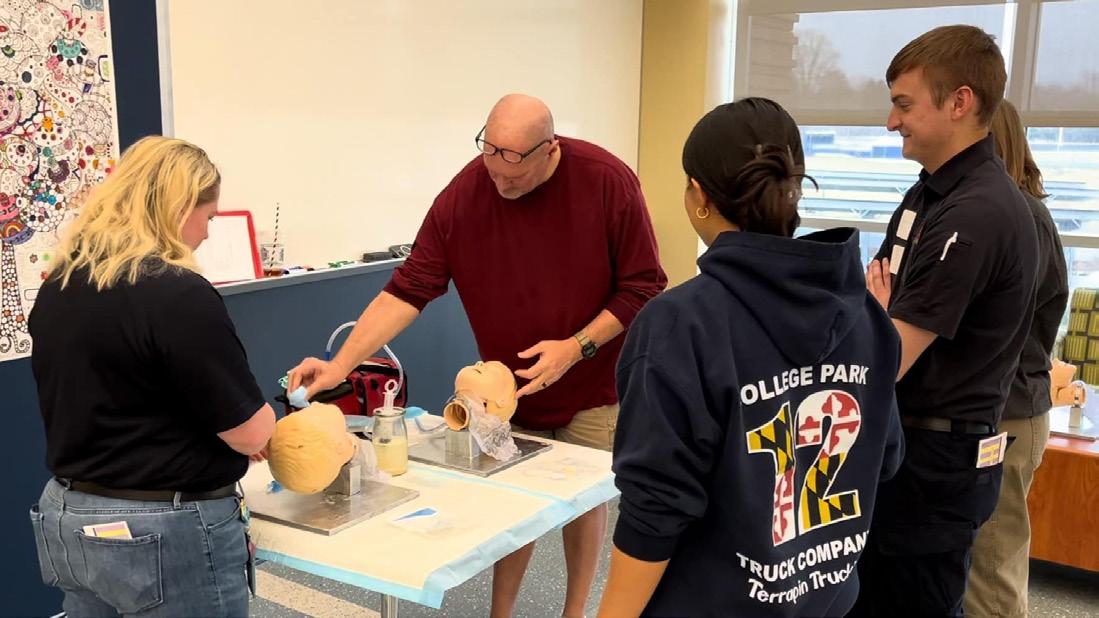

January 30 – 31, 2025 | Elks Lodge #1622 | Easton, MD
Each year, the Winterfest EMS Conference offers BLS clinicians the opportunity to hone their skills with this twopart skills refresher, which combines four hours of didactic instruction followed by eight hours of scenario-based training in accordance with the latest iteration of national and state EMS protocols. Ocean Pines Fire Department
Paramedic/Firefighter Scott Wheatley coordinated this year's EMT skills refresher, one of several Winterfest EMS preconference workshops. n
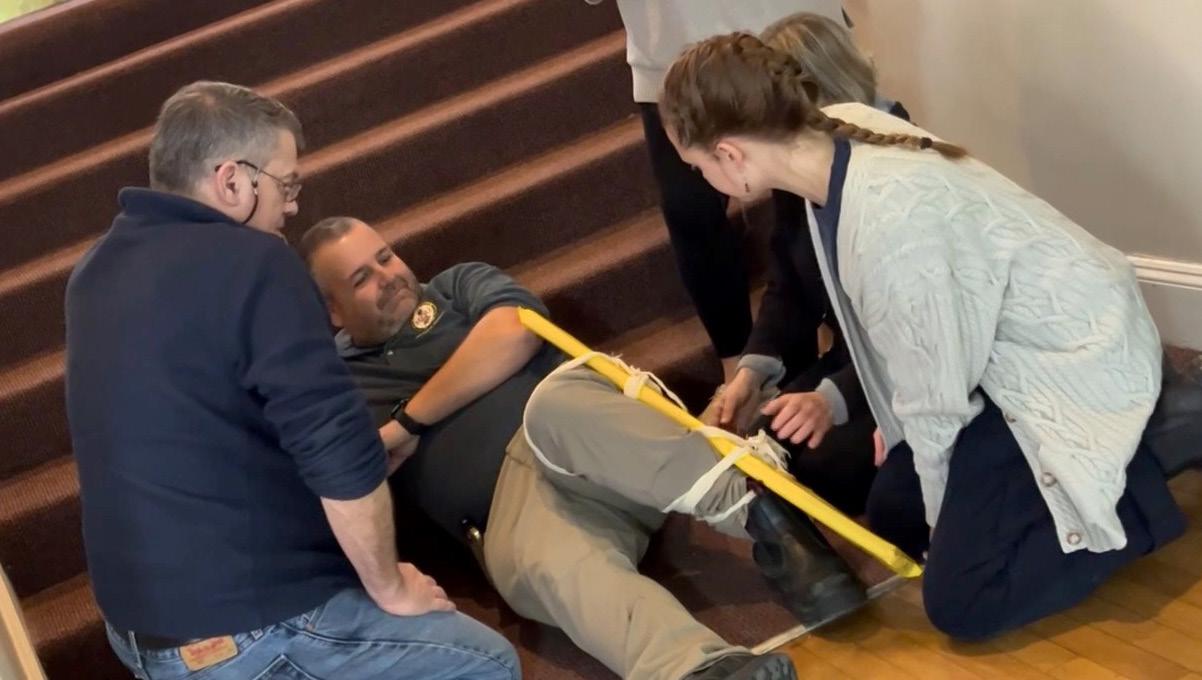



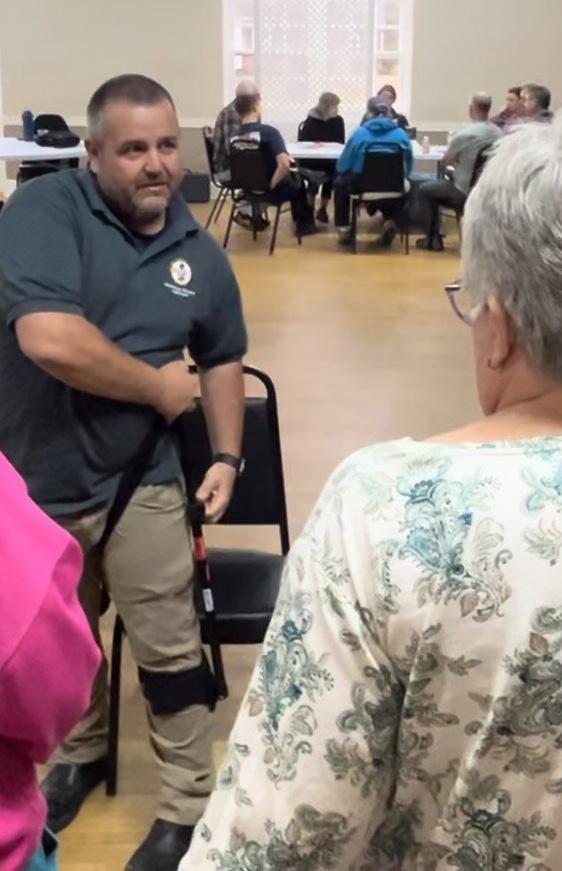
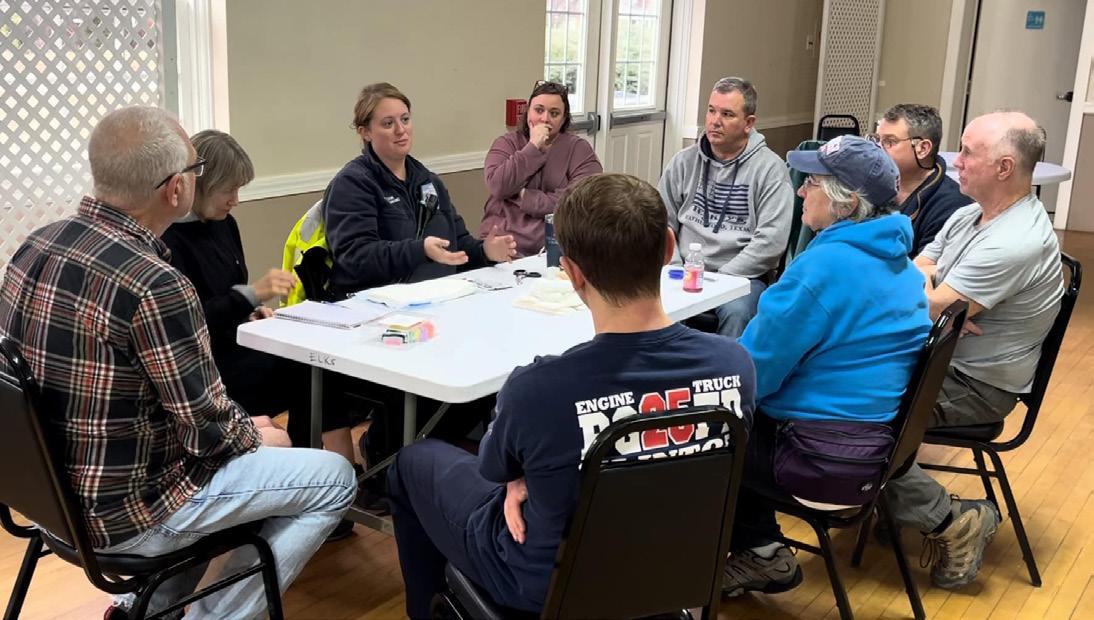

January 31 – February 2, 2025 | Easton High School | Easton, MD
For nearly 30 years, the annual Winterfest EMS Conference has drawn prehospital clinicians and other emergency services personnel from across Maryland's Eastern Shore and around the state for a weekend of valuable hands-on continuing education delivered by top names in the field. In addition to its Exhibition Hall, featuring vendors catering to the needs of emergency medical services, Winterfest EMS also provides an opportunity to enjoy the face-to-face camaraderie unique to an in-person live event. n
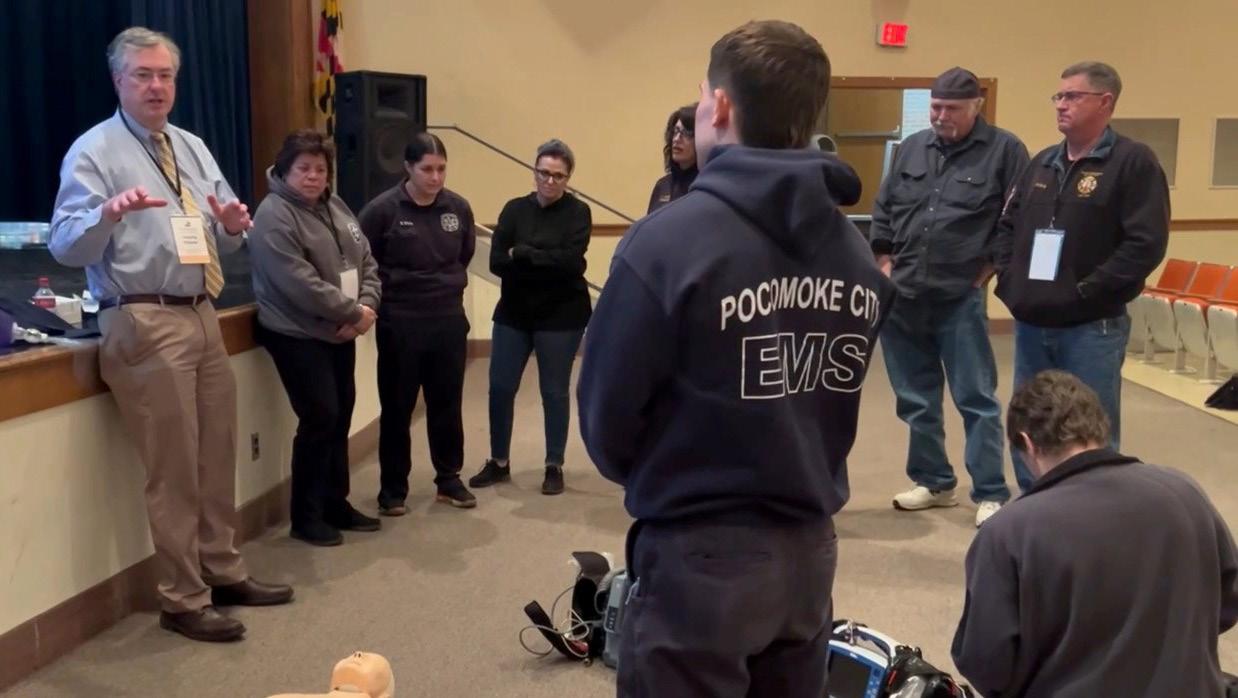






Table Top Fire Burners and S’mores Makers were popular holiday gifts this past year and are seen as fun indoor activities for families. But… are they safe to use?
The short answer is NO as these devices may cause serious burns and injury to all individuals.
In December 2024, the Consumer Product Safety Commission shared a statement “urging consumers not to buy or use fire pits meant to burn pooled alcohol or other liquid fuel” and to get rid of these devices immediately. These types of table top fire pits require refueling every so often to continue use. The refueling process poses a significant risk of a burn as the liquid may spill on the side of the device, may cause an explosion, or may cause fuel jetting. Since 2019, there have been many injuries and two deaths from these devices. Maryland hospitals have seen an increase in patients getting burned from these table top fire pit devices.
It is recommended to use electric burners and S’mores makers instead of one with a flame. Consider an alternative way to make S’mores, such as using a microwave or toaster oven. Always supervise children and pets when around any type of fire. Read the device's instructions before using.
To read the CPSC’s statement, visit www.cpsc.gov/warnings n

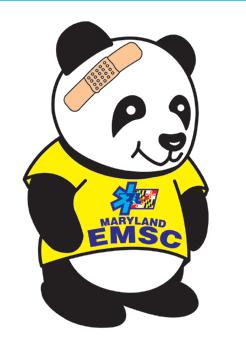
The Emergency Medical Services for Children (EMSC) Program at MIEMSS addresses the unique needs of children within the EMS system, providing a focal point for statewide resources and networking on emergency care for children and their families. Learn more at https://miemss.org/home/emsc, or scan or click on the QR code at right.
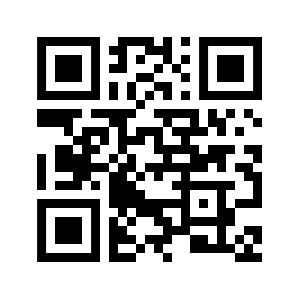

Each year, the Maryland Institute for Emergency Medical Services Systems (MIEMSS) celebrates EMS Week by honoring men and women across Maryland who have contributed to the EMS system. The eight categories for awards relate to specific incidents occurring from January 1, 2024, through December 31, 2024 For further information, call 410-706-3994, or email awards@miemss.org.
MARYLAND STAR OF LIFE AWARD
This award may be given to an individual, multiple individuals, or teams on the same incident for an outstanding rescue under extreme circumstances by EMS personnel.
MARYLAND EMS CITIZEN AWARD
This award is intended for citizen rescuers who have demonstrated quick thinking, fast action, and heroism.
EMS CLINICIAN OF THE YEAR
This award recognizes a clinician who has made outstanding contributions in the past year to the continuous improvement of emergency medical services in Maryland (for example, in the areas of quality assurance, public or EMS education, prevention, delivery of EMS services, and new technology).
EMD CLINICIAN OF THE YEAR
This award is given for extraordinary efforts in assisting the public through dispatch in this vital portion of the Chain of Survival.
OUTSTANDING EMS PROGRAM
This award recognizes a program that offers an innovative approach to reducing death and disability. The program must be affiliated with an EMS system component, such as a hospital, educational facility, rescue squad, or EMS organization.
LEON W. HAYES AWARD FOR LIFETIME EXCELLENCE IN EMS
This award is given to an individual who has devoted a lifetime of dedication to excellence in patient care, compassion and respect for each patient, and commitment to continuous improvement of the Maryland EMS system through his/her professional and personal life.
MARYLAND EMS-CHILDREN (EMS-C) AWARD
This award is given to an adult or program that has demonstrated ongoing dedication and commitment to improving the care for children and for promoting Family-Centered Care in a Maryland EMS program or hospital.
MARYLAND EMS-GERIATRIC (EMS-G) AWARD
This award is given to an individual or program that has demonstrated ongoing dedication and commitment to improving the EMS care of the elderly in Maryland.
Nominations for 2025 Awards are DUE by FRIDAY, MARCH 28, 2025. Submit through the online link: https://app.smartsheet.com/b/form/8bbe19fab5914734a84acc67beff8a7f
The Maryland EMS for Children program is seeking nominations of children and youth in Maryland who have demonstrated The Right Care When It Counts. Actions taking place January 1, 2024, through December 31, 2024, are eligible for nomination.
We will be recognizing children and youth who acted so that others would receive "The Right Care When It Counts." Each nominee will receive a patch and certificate and be eligible for a state award at a ceremony during EMS Week 2025.
Children and youth who have met one or more of the following criteria are eligible for Right Care Awards:

1. Calls or texts emergency response by calling 9-1-1, 9-8-8, or Poison Control Center (1-800-222-1222} in an emergency.
2.Provides their or their family's emergency phone numbers, address, health history (allergies, medications( special needs} and contacts to the emergency dispatcher and/ or emergency responders.
3. Teaches others the importance of having a written emergency plan and practices this plan at home including a disaster preparedness plan.
4. Applies knowledge learned in a class or training, performs CPR and/or uses an AED during a sudden emergency in the community while not on duty as a first responder.
5. Implements a unique program in Community Risk Reduction that provides education in the community.

Nominations for 2024 are DUE by Friday, March 28, 2025
Scan the QR code or visit miemss.org/home/emsc/right-care for more information or nominations
Questions? Email FAN@miemss.org


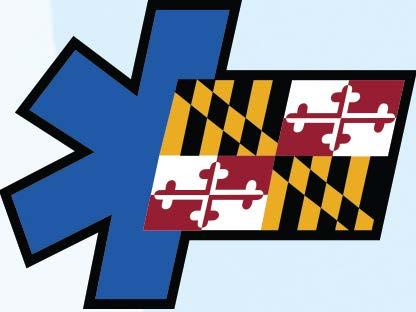
Available
2022-2025 EMSC CPS Project

MIEMSS’ pilot project for EMS Operational Programs (EMSOP) to get “All-inOne” car seats to use in a supervisor’s vehicle for transporting children who do not require ambulance transport is wrapping up. As of December 1, 2024, 42 Graco Slimfit car seats were given to 14 EMSOPs along with training, so now 89 EMS clinicians know how to use them. Statewide, there have been at least six uses of these seats.
MIEMSS’ Child Passenger Safety Healthcare Project has a few of these Graco Slimfit all-in-one car seats still available, and we would like to offer them to a few volunteer EMS companies on a firstcome-first-serve basis.
If your company is interested in getting one and willing to have the 90 minutes training and report on the seat’s use 2-4 times a year, please contact the project coordinator, Susanne Ogaitis-Jones, at cps@miemss.org. In your email, include the supervisor’s name, email, phone number, EMS company, address, and 1-2 sentences of how/where you’d keep this seat to be ready for use in transporting children in non-emergency situations.

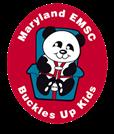
The project is funded from the Maryland Motor Vehicle Administration’s Highway Safety Office to MIEMSS’ EMS for Children program.
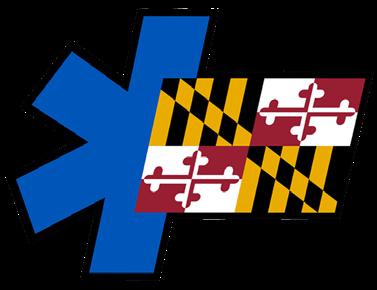
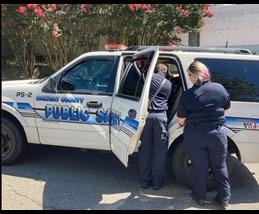
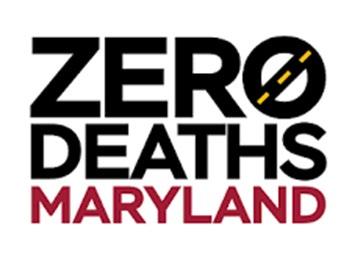
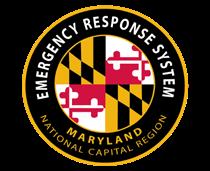
Maryland-National Capital Region Emergency Response System
This past Decemeber, the MarylandNational Capital Region Emergency Response System (MDERS) collaborated with the Prince George’s County Office of Homeland Security and Emergency Management (PG OHS/ EM) to host an offering of the Homeland Security Exercise and Evaluation Program (HSEEP). The Federal Emergency Management Agency (FEMA) HSEEP course provides a framework for participants to effectively manage every facet of exercise planning. The collective approach from MDERS and PG OHS/EM allowed instructors to share valuable lessons in conjunction with the prescribed course materials. The fusion of personal subject matter expertise and FEMA’s curriculum provided attendees with invaluable knowledge to prepare them for overseeing the planning, execution, and evaluation of future exercises.
Man-made and natural threats pose a consistent danger to communities. To mitigate the damage from these emergencies, FEMA developed the Preparedness Cycle to best position jurisdictions to confront evolving disasters. Each aspect of the cycle is imperative, but HSEEP focuses on the cycle's exercise and evaluation portion. Both discussion- and operations-based exercises are the key cog to testing the readiness
of a community and/or departmental plan for a specific or nondescript emergency. The type, complexity, and resources required for each exercise vary greatly. HSEEP provides a baseline to prepare for each exercise type and consider the requirements needed to effectuate that exercise. At the conclusion of an exercise, a review and evaluation of the performance of exercise participants vis-àvis the respective plan is critical to identify gaps and enhance the operational procedures within a community. Both phases inform the next step, planning, and reset the Preparedness Cycle.

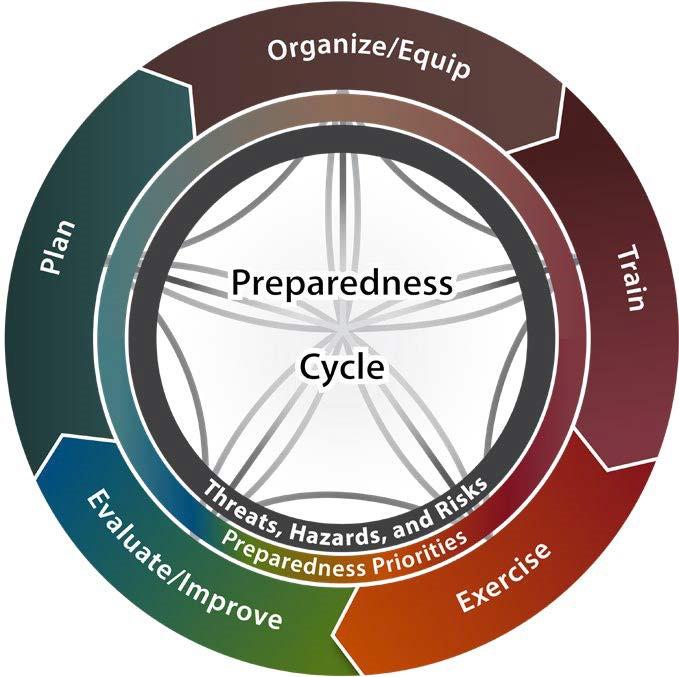
The HSEEP course is a two-day lesson with this iteration held in a training room at PG OHS/EM’s office located in Hyattsville, Maryland. There are six modules, HSEEP Fundamentals, HSEEP Program Management, Exercise Design and Development, Exercise Conduct, Exercise Evaluation, and Improvement Planning, which give a holistic understanding of the Exercise Cycle. Instruction was led by two representatives from PG OHS/EM and
four representatives from MDERS. Each instructor was able to deliver the course materials with unique insight to impart valuable lessons to the attendees. Interspersed in each module are exercises that allowed the attendees to test the skills they have learned in each section. The exercises are a continuous development that helped attendees develop an exercise from inception to fruition. Lastly, the course culminated with a brief, mandatory test to ensure participants grasped the key principles of the course.
MDERS was pleased to continue to partner with PG OHS/EM to collectively teach an offering of HSEEP. The partnership underscores the strong relationships and continuous support that MDERS provides to our stakeholders.
For more information on HSEEP, visit https://www.fema.gov/emergency-managers/national-preparedness/ exercises/hseep
References
n U.S. Department of Homeland Security. (2020, January). Homeland Security Exercise and Evaluation Program (HSEEP). Retrieved from Homeland Security Exercise and Evaluation Program (HSEEP) (fema. gov). n
Overdoses...
(Continued from page 1)
cal behavioral health authorities to our thriving mosaic of amazing community organizations that are working every day to provide supportive services.”
Data from the dashboard show that overdose deaths decreased broadly across demographics and across all age groups. However, health department officials note that disparities in overdose are still present among minority communities in Maryland, and that work must continue to ensure that all communities are connected to care.
Despite making up about 30% of Maryland's population, non-Hispanic Black people accounted for 44% of all overdose deaths in the state since 2022. Black men older than 55 years of age experienced the highest rate of increase. More than 1,050 nonHispanic Black men over the age of 55 died from an overdose during this
Maryland EMS News
MIEMSS
653 W. Pratt St. Baltimore, MD 21201-1536
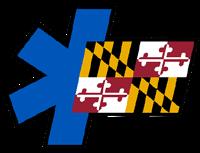
Governor Wes Moore Lt. Governor Aruna Miller
Copyright © 2025 by the Maryland Institute for Emergency Medical Services Systems
653 W. Pratt St. Baltimore, MD 21201-1536 www.miemss.org
Chairman, EMS Board: Clay B. Stamp, NRP
Executive Director, MIEMSS: Theodore R. Delbridge, MD, MPH
Managing Editor: Patrick Tandy (ptandy@miemss.org)
Design & Layout: Patrick Tandy
Photography: MIEMSS Media Services
(unless noted otherwise)
timeframe compared to 600 non-Hispanic White men. Since 2023, overdose deaths among Hispanic people in Maryland under the age of 25 were higher than both non-Hispanic White people and non-Hispanic Black people under the age of 25.
Final numbers in overdose data are pending the outcome of a small number of death investigations.
Last year, the Maryland Overdose Response Advisory Council, chaired by Lt. Governor Aruna Miller, established a workgroup to study racial disparities in overdose. The council is currently working to assess the progress that state agencies have made to address overdose disparities and to formulate recommendations for additional actions.
Marylanders who are struggling with substance use or are experiencing a behavioral health crisis are encouraged to call or text 9-8-8, the
Funding...
(Continued from page 1)
labor management oversight. They may request up to $50,000 in matching grants to prepare individuals for roles such as geriatric nursing assistant, home health aide, and nursing assistant. Successful applicants will develop comprehensive plans that provide individualized support to mitigate barriers to employment, such as transportation and childcare costs.
The Career Pathways for Healthcare Workers Program supports costs for continuing education for current frontline healthcare professionals in a variety of roles, providing a total of $750,000
Suicide and Crisis Lifeline, to speak with someone who can help. Individuals can also visit the 9-8-8 website (https://988helpline.org/ ) to find treatment providers in their areas.
“Collaboration has always been at the heart of Maryland’s strategy for reducing overdoses and saving lives,” said Maryland Special Secretary of Overdose Response Emily Keller. “Everyone has a role to play, from the highest level of government to community members in all parts of our state, and I believe this decrease reflects that collaboration. This crisis affects everyone, and all Marylanders can help save even more lives by learning to recognize the signs of an overdose and how to administer the overdose reversal medication, naloxone.”
Information about how to respond to an overdose and how to find and use naloxone can be found at StopOverdose.maryland.gov/naloxone n
in funding for FY25. Applicants must partner with a Maryland-based Historically Black College or University or community college to deliver training, and they must commit to providing a wage increase to employees who successfully complete training. Grants are capped at $50,000 and applicants must provide a 100% cash match.
Visit the websites of the Direct Care Workforce Innovation Program ( https://labor.maryland.gov/employment/wddirectcare.shtml) and the Career Pathways for Healthcare Workers Program (https://labor.maryland.gov/ employment/careerpathways/cphealthcareworkers.shtml) to learn more. n